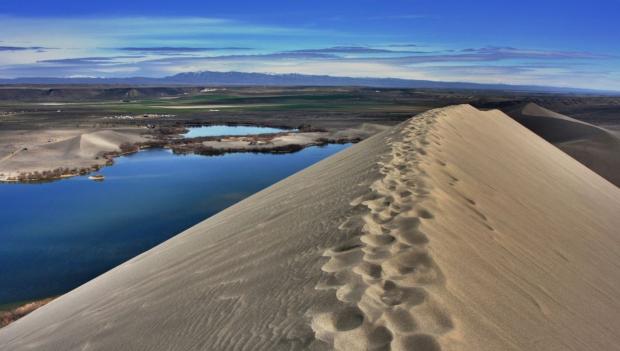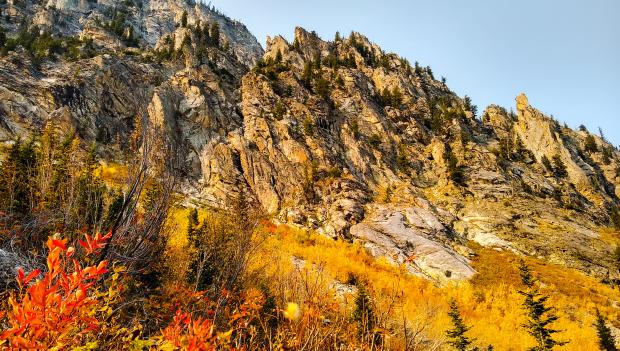
You don’t need to travel the world to find the biggest and wildest, postcard-perfect natural wonders on the planet. From towering sand dunes to deep gorges and churning waterfalls, the outdoor spaces of America are as diverse and Instagram-worthy as anywhere else on Earth.
Fill your bucket list with 15 natural wonders found right here in the U.S.A.
1. Moose Brook State Park, New Hampshire
Located in the White Mountains Region, Moose Brook State Park is an area of unparalleled scenery and offers a variety of outdoor activities. The park is ideally located for fishing in the Peabody and Moose Rivers. Moose Brook flows through the park and feeds the swimming area with cool, clear mountain water. The many trails in the park are great for exploring on foot or mountain bike. The campground also offers variety of sites.
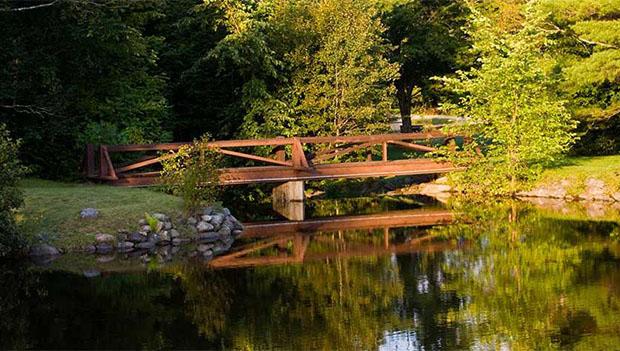
2. Indiana Dunes State Park, Indiana
Indiana Dunes is a recreationalists dream with large sand dunes that tower nearly 200 feet up, and more than three miles of beautiful beach set against Lake Michigan’s southern shore. The park consists of over 2,000 acres of primitive, beautiful, historic and unique Hoosier landscape. While your there be sure to go for a hike along the dunes, excellent for late spring wildflowers, including prickly pear cactus.
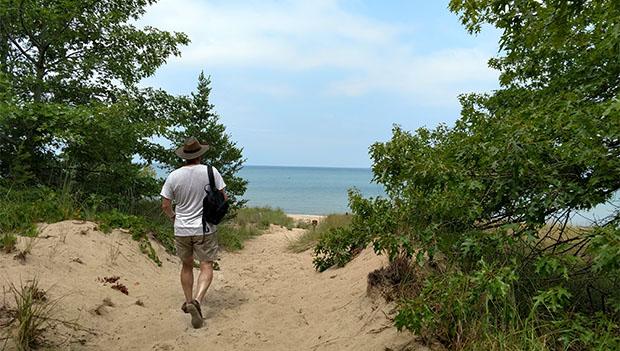
3. Merchants Millpond State Park, North Carolina
Take a break from the mountains and discover a different side of North Carolina at Merchants Millpond State Park. Rent a canoe and paddle through the 760-acre Millpond, surrounded by Spanish moss, tupelo gum trees and floating yellow lily. On the north end, the journey continues where the pond meets Lassiter Swamp. Soak in the fairytale-worthy sights as you cruise through an ancient bald cypress swamp, with pond turtles, leopard frogs, bull frogs and more creatures swimming below. Visitors can also explore the forest region on hiking trails.
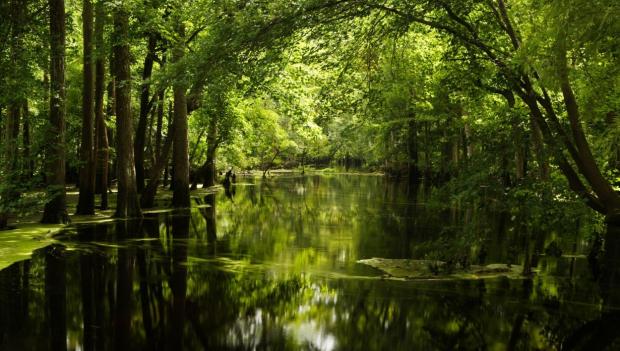
Recommended: 9 Refreshing Lake Camping Experiences
4. Kachemak Bay State Park, Alaska
Escape to Alaska’s first state park, and only wilderness park which contains roughly 400,000 acres of largely unexplored mountains, glaciers, forests, rivers and waterfalls and offers a 10-mile coastline strip that is excellent for fishing and kayaking. Kachemak Bay is a wildlife enthusiasts dream as sightings include puffins, eagles, moose, black bear, sea otters, seals, porpoises and whales. Make sure your boat is secure before walking away as Kachemak Bay’s tides are the second largest in the world. Special park attractions include Grewingk Glacier, Poot Peak, China Poot Bay, Halibut Cove Lagoon, Humpy Creek, and China Poot Lake.
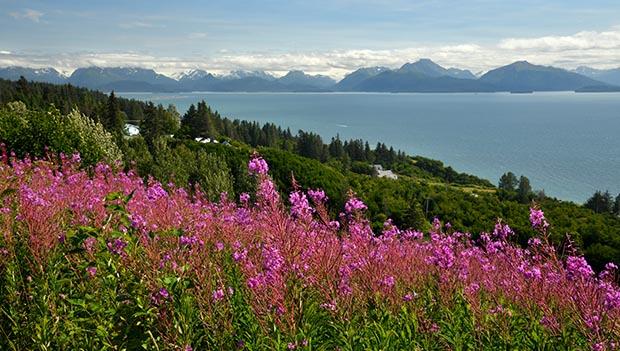
5. Cumberland Falls State Resort Park, Kentucky
Did you know the “Niagara of the South” can be found in Kentucky? Towering at 68-feet tall and 125-feet wide, Cumberland Falls is one of the largest waterfalls east of the Rocky Mountains. What makes this southern star even more impressive is the rare moonbow visibility. Just imagine what it would be like to see a rainbow at night. On a clear evening with a full moon, onlookers can see a lunar rainbow reflected in the falls. Nowhere else in the Western Hemisphere is this regularly visible.
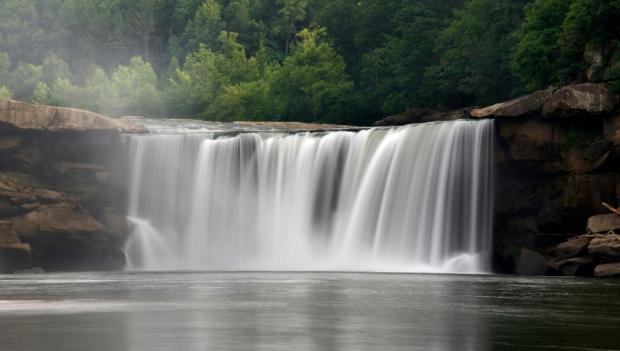
6. Wallowa Lake State Park, Oregon
Nestled in Oregon’s Alps and one of Oregon’s 7 wonders, Wallowa Lake State Recreation Area is ideally positioned as a base camp for wilderness treks, water sports fun and easy family touring. The campground offers a unique experience by itself as it’s surrounded on three sides by 9,000′ tall snow-capped mountains and large scenic glacial lake. Within walking distance of the campground parkgoers can enjoy wilderness trails, horseback riding, canoeing, or taking a tramway to the top of Mt. Howard, a rise of 4,000 ft.
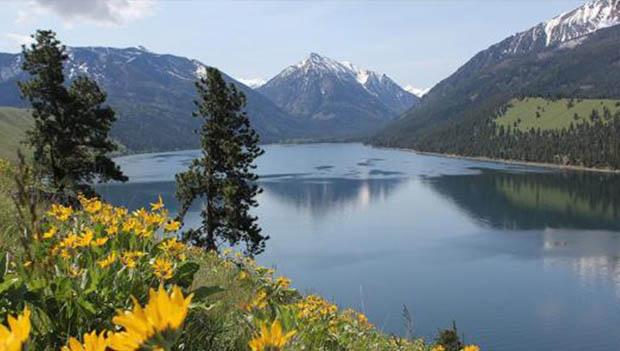
Recommended: 9 Unique Desert Camping Experiences
7. Rifle Falls State Park, Colorado
What’s better than one majestic waterfall? Three side-by-side waterfalls cascading down rocky cliffs and limestone caves. Hikers will discover three, 70-foot waterfalls at Rifle Falls State Park in Colorado. The refreshing mist and magical scenery is the perfect natural reward for a moderate trek. And if you dare, navigate down to the caves and catch a glimpse of the bats that call the region home. Hiking trails continue above the falls, offering opportunities for elk and deer sightings.
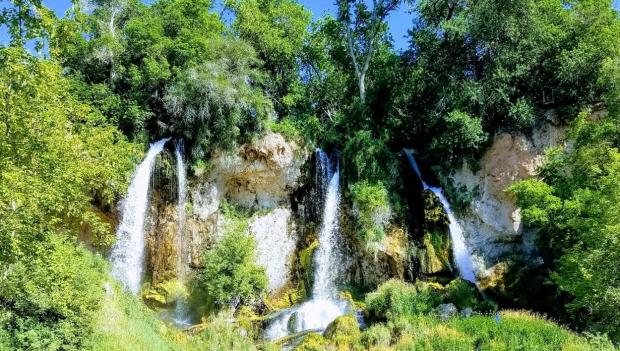
8. City of Rocks State Park, New Mexico
Deep within the Chihuahuan desert of southwestern New Mexico, explorers will pause in awe to admire a city of volcanic rock formations. A volcano erupted nearly 35 million years ago, and over the centuries, wind, rain and erosion sculpted the ashy rocks into uniquely shaped pinnacles rising in the desert sky up to 40 feet high. The natural phenomenon is referred to as a city, for the placement of the rock columns that creates a walking path for visitors to enjoy.
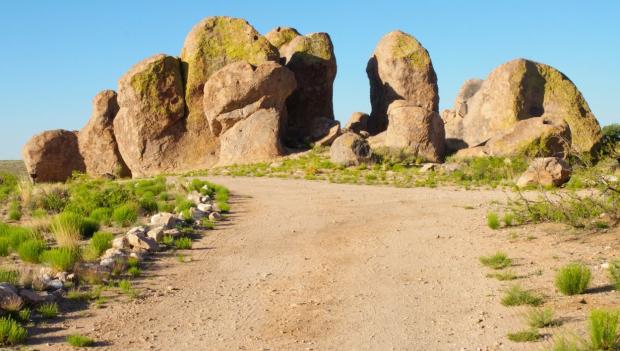
9. Niagara Falls State Park, New York
Witness the tremendous power behind the river that drains four of the five Great Lakes. Once in danger of being overrun by industrialization in the form of mills and dams, the falls and surrounding park lands were preserved by environmentalists and NYC Central Park creator Frederick Law Olmstead. Hike Niagara Falls State Park’s trails into the gorge for views of the triple falls from the rim.
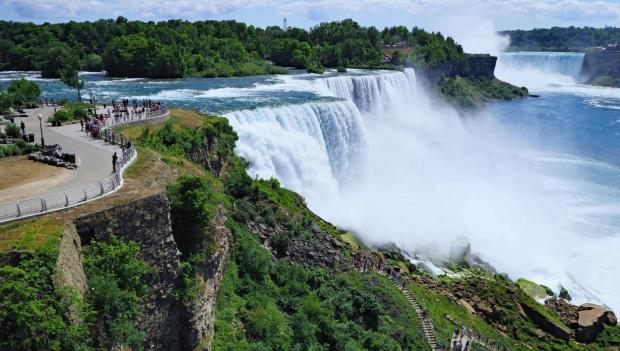
Recommended: 9 Scenic Mountain Camping Experiences
10. Tallulah Gorge State Park, Georgia
One of the Seven Natural Wonders of Georgia, Tallulah Gorge is a breathtaking natural attraction everyone should see with their own eyes. The Tallulah River broke through the Tallulah Dome rock formation over the ages, and the result is a 2-mile-long gorge with jagged cliffs that rise 1,000-feet in the air, surrounded by forestation. The geological layers are a sight to behold, as are the multitude of waterfalls that cascade over the land’s edge. There are trails and viewing areas for access to the six primary falls. More adventurous visitors can take to the water below for river rafting.
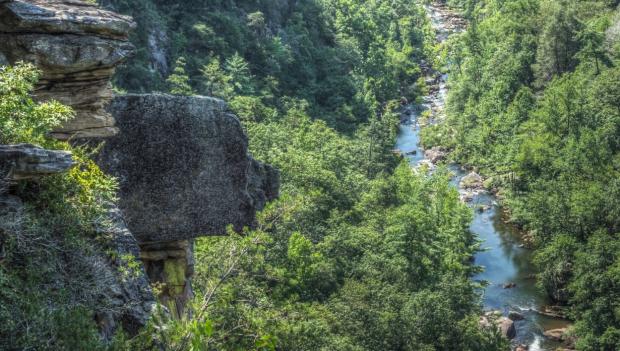
11. Colorado Bend State Park, Texas
Two hours west of Austin is protected wilderness at Colorado Bend State Park. The two main attractions are the Wild Cave Tours to explore with a guide by booking a tour, and a 3-mile round trip hike to the beautiful 70-foot Gorman Falls. Get away from it all by enjoying the natural environment at any of the 54 primitive campsites or three group camps for your next family trip.
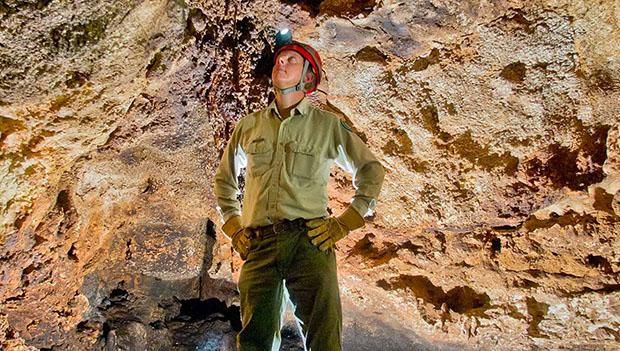
12. Giant Springs State Park, Montana
For the ideal combination of summer fun and historical learning, add Giant Springs State Park to the road trip itinerary. The “giant” springs were first recorded by the Lewis and Clark Expedition in 1805, and today it remains one of the largest known freshwater springs in the United States. Over 150 million gallons of water flow through the springs every day. Families can visit the nearby Lewis and Clark Interpretive Center to engage with the region’s rich history. Or, explore the park’s trail system.
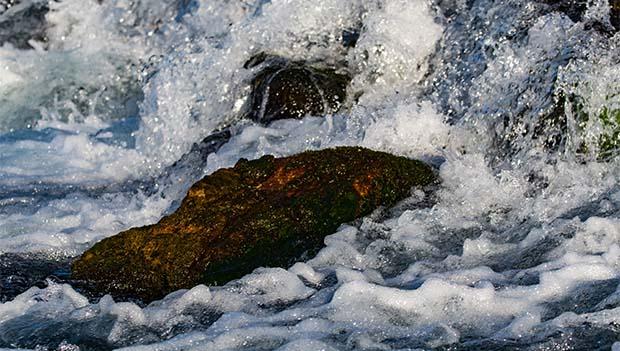
Recommended: America’s 13 Best Waterfall Hikes
13. Indian Cave State Park, Nebraska
Come for the up-close views of the winding Missouri River and stay for the enlightening tour of the namesake petroglyph cave. Within Indian Cave State Park is a preserved cave adorned with prehistoric Native American petroglyphs – the exact origins of which are unknown. While access is limited to protect these national treasures, visitors can view the writings and drawings from a wooden boardwalk self-guided walking tour. For more exercise, explore the park’s 22 miles of multi-use trails.
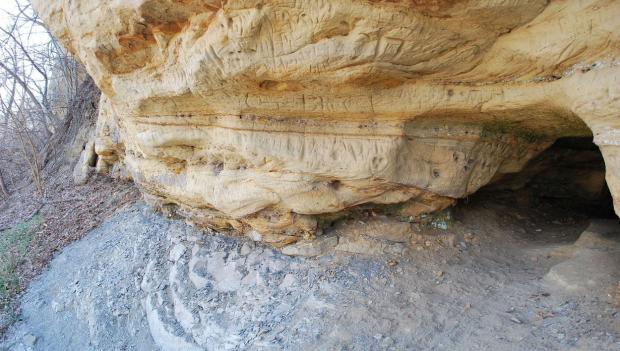
14. Little Jerusalem Badlands State Park, Kansas
Find yourself in awe at Little Jerusalem Badlands State Park while exploring unique Niobrara chalk formations from 85 million years ago. Take the Rim Trail around the mile of towers or a ranger led tour to immerse yourself in the other-worldly landscape perfect for pictures. Just 10 miles away is Historic Lake Scott and a great place to stay. National Geographic listed it as one of the country’s 50 state parks to visit with spring-fed Scott State Fishing Lake for boating, and trails leading to wooded canyons to explore.
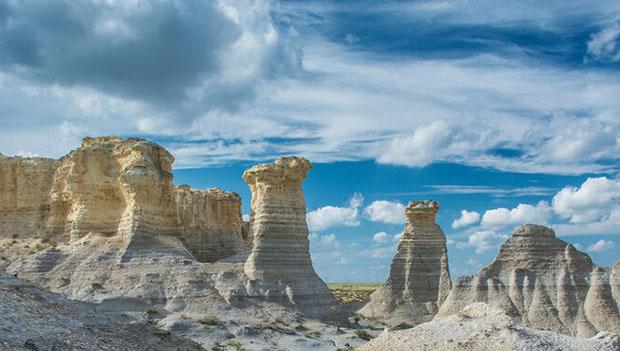
15. Bruneau Dunes State Park, Idaho
Home to the tallest single-structured sand dune in the United States (470 feet high to be exact), Bruneau Dunes State Park is a great place to try your hand at sand boarding. The 4,800 acre-park offers a variety of ways to enjoy the dunes and surrounding lakes. If adventure sand-sports aren’t exactly your thing, the park is also beloved for its fishing, hiking, swimming and bird watching. In the evening, visit the Bruneau Dunes Observatory where telescopes are on-site for stargazing.
